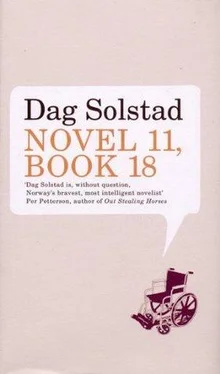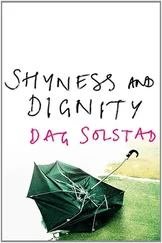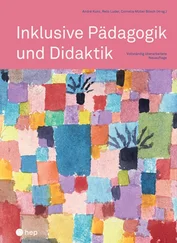He kept an eye on her. While he constantly watched over her and kept up his jealousy, he contemplated her. She was the natural centre of the Kongsberg Theatre Society, an association of enthusiasts who filled their lives by laboriously setting up and carrying through six performances a year of some of the most popular operettas of our time. In full public view. On the stage. In the limelight. For seven years Bjørn Hansen had been one of these enthusiasts. Treasurer in the day, enthusiast in the evening. Was that enough? Could there not be more? Bjørn Hansen was going on forty, and he screamed for something more. He began to throw out hints that perhaps they should try for something big. All this enthusiasm, all this experience of how to conduct oneself on the stage, all this delight in precision and in displaying one’s abilities — couldn’t it be used for something more than performing operettas, which, while capable of kindling a gaiety of spirit both in the actors and, not least, in the public, could nevertheless make one feel rather dejected, or outright weary, with all their intellectual vacuity, everything considered, after the lights had come up in the hall, the public had gone home, and they sat in the dressing room removing their make-up? What if they rose to a level where one could feel the blast of real life? What if they had a shot at Ibsen?
For two years Bjørn Hansen kept hinting that they should have a shot at Ibsen. It evoked little response. In particular, his effort to arouse their enthusiasm by pointing out the feelings of emptiness they were left with once a performance was over, due to an operetta’s lack of intellectual substance, cut no ice. It was an attack on everything they stood for, and it was foolish on Bjørn Hansen’s part to call attention to it, although they had certainly felt this dejection, some of them in any case. However, he was supported by two of the Society’s members, and they were not just anybody. One of them was the singing dentist, Herman Busk.
Herman Busk had an exceptionally fine baritone voice, which many thought was fit to be heard on more important stages than the one in the Kongsberg Cinema six times a year. He was one of the guiding spirits of the Society, and if he did not take the lead, he had in any case the next most important male role. But it was at rehearsals that he was most impressive, usually outside the programme. How many times had the others packed up, about to leave, when Herman Busk suddenly began to sing the melody they had heard him rehearse all evening. Everything was in place. All of his painstaking practice had suddenly produced results, and they listened spellbound, all of them thinking, ‘This will be a stunning number on stage.’ As it turned out to be, although perhaps falling short of their predictions. Maybe the expectations were too great; Herman Busk never reached the truly great heights on the stage proper — he was good enough to brilliantly defend his moniker ‘The Singing Dentist’, but not to fulfil the expectations that had been awakened in those cramped rehearsal rooms with one’s hand on the door, about to step out into the evening darkness and the deserted streets. Now, however, Herman Busk became interested in the Society doing Ibsen, and Bjørn Hansen’s idea could no longer be dismissed. Incidentally, due to this surprising stand, Herman Busk and Bjørn Hansen became better acquainted with one another; they would sit and discuss things for hours and became intimate friends — indeed, Bjørn Hansen came to look upon Herman Busk as his best friend.
The other person who backed him was Turid Lammers. That was a surprise, for Turid had no relationship to Ibsen. She spoke nicely about him, of course, and treated him as a classic, but she did not care very much for his plays. This he knew because they had seen Ibsen performances at the National Theatre in the capital several times, but these she had suffered in silence. So that she might now actively work to have her own dear Theatre Society put on The Wild Duck was unbelievable to him. In reality she did not care about operettas either, as a spectator. It was too banal fare for her, despite everything; true, she was eager for them to go to Oslo when the Norwegian Theatre put on one of its annual musicals, but that was simply to pick up a few tricks. Still, operettas were what she felt closest to. Originally he had thought that her kind of theatre would be avant-garde, as it had been when he was her lover as a married man in Oslo, but when she moved back to Kongsberg with its Theatre Society, it was all operettas and there was no more talk about avant-garde theatre; in some way, however, avant-garde theatre and operettas had one thing in common for her, namely, that the content signified nothing, the masquerade everything. What she had been absorbed by in avant-garde theatre were the masks and nothing else. They had no children together. Turid Lammers did not become a mother; she would sometimes allude flirtatiously to her not having children, calling it the tragedy of her life. But actually Turid Lammers did not want children, she was not prepared for that. Not now. If she were to have had children, she would have had them with her first husband, in France, in the 1960s, and Bjørn could have pictured to himself her leaving France head over heels, holding a small child on her arm as she waited at Gare du Nord for the night train to Copenhagen (and from there to Oslo) to be set up. But when she came back to Oslo after seven years in Paris, it was without a child. As a solitary woman, free, restless, who took a lover, a man to whom she later bound herself and took with her when she returned to the town of her childhood. Turid Lammers was childless and wanted to remain childless — in her innermost self she wanted to be the last. Operettas were to her a brilliant pretext to carry into effect what to Turid Lammers was theatre: costumes, masks, wigs, quick changes, pace, pace. But now she supported her partner’s idea that the Kongsberg Theatre Society should stage The Wild Duck by Henrik Ibsen, and very actively at that. Was it to show her loyalty? Towards him and towards the others? Did she want to present herself as Bjørn Hansen’s loyal partner, willing to fight in order for him to realise this plan that he felt so passionately about, and which she too felt passionately about now, since it was his plan, although everyone understood that in reality she didn’t care a damn, except for the fact that her partner happened to feel so passionately that the Society should stage something which would give them all a lift, The Wild Duck by Henrik Ibsen.
That is to say, Turid Lammers’s support was a handsome gesture, a mark of favour from the circle’s central figure to her rather anonymous husband when, for once, he needed it. But while respect for Turid Lammers increased, as an argument for staging The Wild Duck by Henrik Ibsen her support proved counterproductive. Why go overboard? Just because Turid Lammers’s partner had taken it into his head that they should aspire to something higher, were they to put on a play for which they simply lacked the qualifications to succeed? This was what was muttered in the corners, but since a mainstay like Herman Busk was in favour of it, besides a number of others who were also familiar with the sense of emptiness that a successful operetta performance could leave in their minds once the curtain had gone down, and who could also easily imagine, for once, trying to reach for the impossible, it was decided that the Society’s next production would be The Wild Duck by Henrik Ibsen.
And when Turid Lammers proposed that Bjørn Hansen himself should appear in the role of Hjalmar Ekdal, nobody protested. Apart from Bjørn Hansen. He had not meant to reserve the lead for himself, that was not why he had made his proposal; it had never occurred to him. But his protests, which were quite mild anyway, were simply dismissed — of course, Bjørn Hansen would appear as Hjalmar Ekdal. Many supported him simply because it meant that he would be nailed to the imminent fiasco, made to feel it in the flesh, up on the stage, while it was taking place. This he understood, and that was why he accepted the assignment. The great role of Gregers Werle was intended for Herman Busk, but the singing dentist refused. Too big a part for him, he claimed. On the other hand, he could very well be Old Ekdal, unless they found someone who was better qualified. And so Brian Smith was chosen to be Gregers Werle. With his broken Norwegian this English engineer from the Kongsberg Arms Factory would give a new dimension to the uncompromising merchant’s son from Ibsen’s world of ideas. Dr Schiøtz would play Dr Relling. This, too, was proposed by Turid Lammers, and it was obviously an attempt at wooing the public. A physician at the Kongsberg Hospital appears in the part of a physician in a play — one of Henrik Ibsen’s at that. Dr Schiøtz as Dr Relling, the besotted physician with his clear-sightedness. But Dr Schiøtz refused. Turid put all her charm into persuading him, but Dr Schiøtz refused. Who was Dr Schiøtz? No one knew. He was one of the more serious and unapproachable among the group of homo ludens types that made up the Kongsberg Theatre Society. A man in a doctor’s smock, tall and thin. With sensitive fingers — a pianist? Not as far as they knew, but he was a cross-country skier. During the winter months he was seen early in the morning up in the hills around the town, going at full speed along the plateaus on his racing skis. In the theatre he always played walk-on parts, swapping duties at the hospital in order to appear in the background, as Mr Nobody, in all those operettas. But he refused to be Dr Relling. The woman who was chosen for the part of Hedvig, however, did not say no. For that role a twenty-one-year-old nursing student was an obvious choice, not least because she had such a sweet and childish face. Turid Lammers also made it into the cast. She was to play Hjalmar Ekdal’s wife and Hedvig’s mother: Gina Ekdal.
Читать дальше












